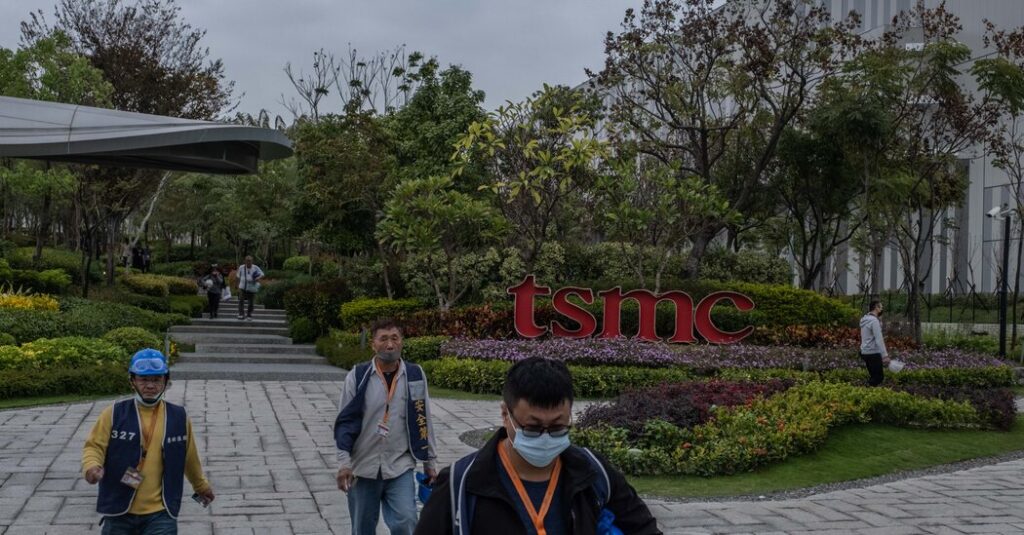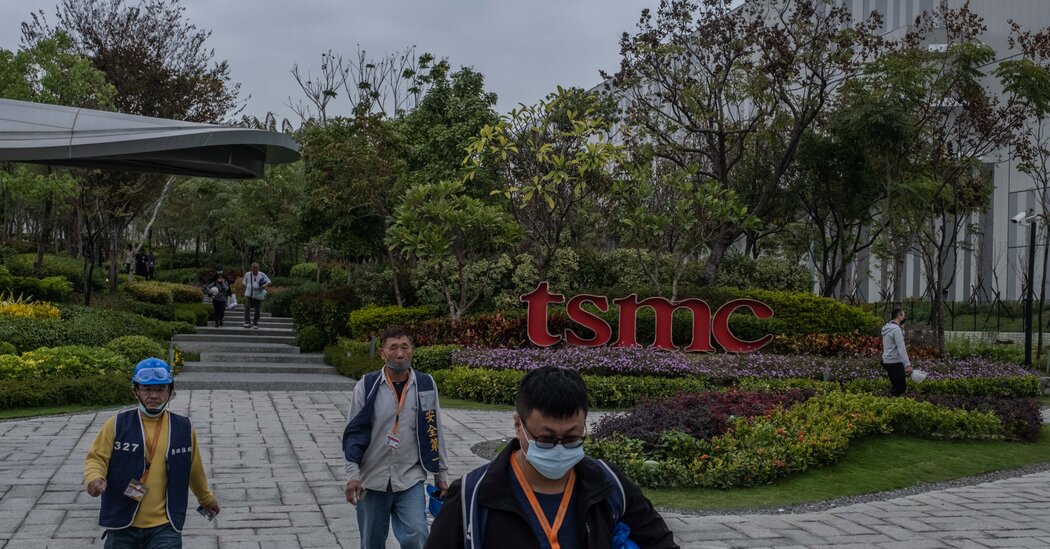Trump’s Tariffs Don’t Apply to Chips, but Taiwan Remains Wary
The chip companies in Taiwan, the center of the global supply chain, are expected to face pressure from Washington to invest more in the U.S.


Taiwan, the center of the global supply chain for computer chips, woke up on Thursday to the news that President Trump had put new 32 percent tariffs on the island’s exports to the United States. Except for semiconductors.
The decision not to impose tariffs on the chip sector does not mean they won’t be coming for Taiwan or anywhere else, including South Korea, another major source of chips.
Taiwanese companies have spent decades and billions of dollars building up a network of factories that conduct the complex process of etching tiny circuits onto pieces of silicon.
These chips — and a broad range of electronic devices that contain them — are Taiwan’s main exports. And they are increasingly the focal point of the Taiwanese-U.S. geopolitical relationship, which has undergone a markedly transactional shift since Mr. Trump took office.
Mr. Trump previously said Taiwan had gained an unfair dominance in making semiconductors and threatened to impose tariffs on the sector. He has also accused Taiwan, which depends on the United States for political support against China’s claims that Taiwan is part of its territory, of spending too little on its own security.
Officials and businesses in Taiwan have been scrambling to soften the blow of Washington’s tariff threats. Last month, President Lai Ching-te said Taiwan was interested in buying natural gas from a long-stalled project in Alaska.








